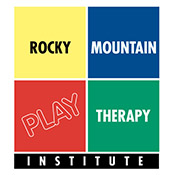Yellow Stream: Certificate in Sandplay with Special Populations using Play Therapy Skills and Techniques

 Two possible routes!
Two possible routes!
 Play Therapist: CAPT Certification Route
Play Therapist: CAPT Certification Route
 CAPT Route: For those seeking to become Certified by that Canadian Association for Play Therapy (CAPT), this is the recommended program to take in addition to the Green & Red Stream programs, to fulfill the requirement of 180 hours of play therapy training by CAPT. Registrants en route toward Certification by CAPT should first complete the Green Stream (or an equivalent), prior to taking this yellow stream program (Note: it may be taken prior to the Red Stream).
CAPT Route: For those seeking to become Certified by that Canadian Association for Play Therapy (CAPT), this is the recommended program to take in addition to the Green & Red Stream programs, to fulfill the requirement of 180 hours of play therapy training by CAPT. Registrants en route toward Certification by CAPT should first complete the Green Stream (or an equivalent), prior to taking this yellow stream program (Note: it may be taken prior to the Red Stream).
 Special Interest & Advanced Practitioner
Special Interest & Advanced Practitioner
This certificate program can be taken as a stand-alone specialized training for Masters degree level mental health practitioners (or those in a Masters degree program) wishing to explore this play intervention/modality. Due to the focus on sandplay techniques, as applied to special population/referral issues, as well as a developmental approach (understanding developmental stages as represented in the sandtray), previous training in play therapy is recommended (such as completion of the Foundations of Play Therapy: Green Stream ).
The Certificate in Sandplay with Special Populations using Play Therapy Skills and Techniques program is 21 contact hours - In Room or Live-On-line (minimum number of participants required for In Room) and 5.5 hours non-contact hours (reading and mastery test) (Total 26.5 hours)
This certificate program is part of RMPTI’s fully integrated training program continuum, as it builds on the integrative approach to play therapy introduced in the Green Stream, with an emphasis on theory, techniques and applications to special populations.
Taking a developmental approach (understanding developmental stages as represented in the sandtray), the program focuses on sandplay techniques as applied to special population/referral issues (e.g., children of divorce, traumatized clients, giftedness, anxiety/phobias, depression, etc.). Participants will have the opportunity to engage in experiential sandplay activities that range from interactive to static use of the sandtray and will be exposed to various theoretical orientations of sandplay.
Program Goals
The primary goals of this program are to deepen participants’ understanding and experience with using symbols and metaphors in sandplay, expand inquiry skills, and abilities to track the sandplay process. The program also strengthens participants’ substantive knowledge base of special population/referral issues, including:
• Trauma / Medical traumas/Complex grief & loass
• Anxiety/Phobias
• ASD
• Bullying
• Eating disorders
• Giftedness
• Working with families
• Working with twins
To access program dates see the training calendar for 2025
For full details please refer to the application form.
Cancellation policy
Who Should Attend?
It is recommended that students enrolled in the CAPT Route of Certification take this program after completing the Green Stream. Like other Yellow Stream programs, this program is designed for Masters degree level (or currently enrolled in a Masters degree program) mental health practitioners who wish to add to their play therapy training resume.
Entrance Requirements
Attending or completed graduate mental health degree program. Completion of the Certificate in Therapeutic Play Skills (Green Stream) – or equivalent.
Required Readings
Carey, L. (1999). Sandplay Therapy with Children and Families. New Jersey: Book-mart Press.
Program Outline
On-Line Program:
Historical & theoretical constructs
- Development of the Ego & Psyche
- Symbolization process
- Archetypes
- Conscious processing
- Transcedent function
- Progression & regression
- Stages of development (e.g., R. Bowyer)
- Compensation & Adaptation
- Cased study
- Personal exercises
Day 1
During Day 1 participants will explore theory and practice issues and begin to identify ways to understand and interpret the therapeutic use of sand and sandplay. The day will focus on entering the process personally, inviting a client to enter the process and observing, tracking and recording while remaining aware of the context of the presenting issues. The importance of self-reflection and “use of self” will be emphasized.
Day 2
During Day 2, participants will explore developmental differences when working in sandplay and study two different age bands 4-7 year olds and 8-11 year olds. This day will focus on conceptualization and how to understand the use of sandplay when working with special issues such as high conflict divorce, child abuse and loss. Participants will review the role of the therapist and compare and contrast moving versus static sandtray examples. Practice opportunities using story stems and other directive activities will be provided. Those in attendance will follow a few case studies where levels of consciousness and directiveness and degree of interpretation will be discussed.
Day 3
During Day 3, participants will study the use of sandplay with adolescents (which leads into adult work). Parent involvement and parent feedback will be considered. When to include a parent or family will be discussed. A case example that spans the 8-11 year old group and inclusion of a parent will be demonstrated. Participants will practice inquiry skills and have chances to practice in dyads. Special topics will be discussed such as working with eating disorders and phobias. Participants will study special ethics and practice guidelines when working in sandplay.
Learning Objectives
To provide an overview of the use of sandplay in various counselling settings, with special populations, and to provide participants with experiential learning opportunities
Upon successful completion of the course each participant will be able to:
- Explain the history and theoretical perspective guiding sandplay in the play therapy setting
- Describe the sandplay process & stages of sandplay in play therapy
- Design sandplay activities with a variety of presenting problems/populations in play therapy
- Demonstrate an understanding when working with symbols and metaphors in sandplay with children in play therapy
- Describe how to working with various ages and stages of development when working in sand in play therapy
- Describe ethics and guidelines related to sandplay in play therapy
- Describe working with sandplay and families in play therapy
- Demonstrate ways to provide feedback to parents and third parties in the play therapy process
- Discuss when to be directive or non-directive in sandplay in play therapy
- Demonstrate increased skills in inquiry and tracking when using sandplay in play therapy
- Demonstrate use of tracking/recording tools in sandplay during play therapy
- Describe use of self & the holding process in sandplay work in the play therapy setting
Methods
- Experiential activities
- Videos & case examples
- Reading assignments
- Written case conceptualization assignment
Awards
Participants will receive a Certificate in Sandplay with Special Populations from Rocky Mountain Play Therapy Institute. This certificate confirms the completion of 26.5 hours; 21 direct contact hours plus 5.5 non-contact hours (mastery quiz, readings, Twin Study) This specialized play therapy training is approved by APT, CAPT and BCPTA.
Training hours can be used toward certification as Play Therapist.
NOTE: APT, CAPT, & BCPTA Continuing Education Credits will only be awarded to Mental Health Professionals. All credits must be approved by the appropriate governing body and cannot be guaranteed by RMPTI. This training meets the definition of APT’s Live-Webinar.
The certificate will be awarded based on:
• Satisfactory attendance (no whole module may be missed unless there are extenuating circumstances. A makeup assignment may be requested depending on time missed).
• Satisfactory completion of a written case conceptualization assignment.
